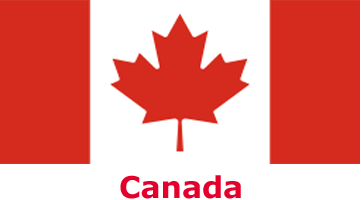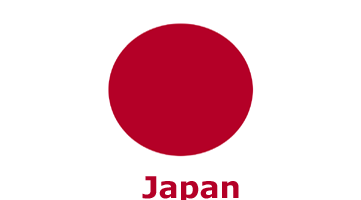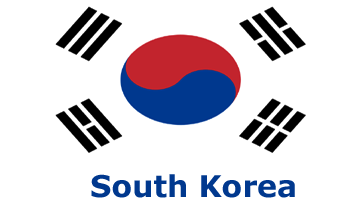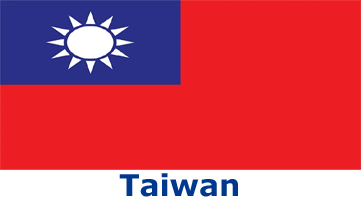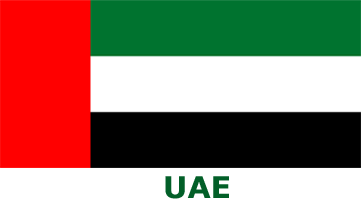
Higher Education Opportunities: Singapore
In the past, many students chose Western countries for studying abroad. However, in recent times, there has been a shift in this trend. Asian countries such as China, Japan, Korea, and Taiwan gaining popularity among Indian students, along with Europe, America, and Australia. Despite having good universities and opportunities, language barriers can hold students back. However, Singapore has always been a popular choice for Indian students. Now, let's see what higher education prospects are available there.
Primary Information
Singapore, officially the Republic of Singapore, is an island country and city-state in maritime Southeast Asia. Singapore, situated at the northern edge of the Malay Peninsula in Southeast Asia, comprises one main island and around sixty smaller islands. Covering just under 800 square kilometres, it's a small nation bordered by Thailand, Cambodia, Malaysia, Indonesia, and the Philippines. Singapore has four official languages: English, Malay, Mandarin, and Tamil. English is the lingua franca, with its exclusive use in numerous public services. Multi-racialism is enshrined in the constitution and continues to shape national policies in education, housing, and politics. According to the Department of Statistics (2021), a Singapore Government agency, there are approximately 198,449 Tamilians and 26,693 Malayalees in Singapore. Standing prosperously ahead in economy, Singapore possesses one of the world's largest ports.
- Capital: Singapore
- Language: Malay
- Currency: Singapore dollar (S$) (SGD)
- Population: 5,917,600 (Year 2023)
- Density: 7,804/km2
- GDP PPP Total $753.273 (2023)
- GDP PPP Percapita: $133,107
Why Singapore?
Singapore is renowned for its excellence in higher education and job opportunities. With its highly developed economy, high per capita income, reputable universities, and various scholarships, it's a popular destination for international students. Further, Indian students often find it easy to adapt to Singaporean society with limited cultural shock. But competition can also be fierce accordingly, due to the abundance of opportunities. Studying and conducting research in esteemed institutions can present formidable challenges. These institutions uphold rigorous learning methods and high standards, demanding excellence from their students. Institutions in Singapore prioritize smart, dedicated students who approach their studies with precision and punctuality, rather than just focusing on grades. In Singapore, over 80,000 foreign students are studying currently. Their education methods ensure quality and consistency in science and technology subjects. Their education is top-notch because Singapore has excellent universities and facilities. These universities are known for their cutting-edge research in science and technology.
Job opportunities: Singapore's strong economy also means more job opportunities. Contrastingly, in our country, apart from the professional course graduates, it is straining for others to find jobs in their respective fields, especially those who have the highest degree in science courses. Otherwise, the students should complete their courses from institutions with high brand value. The prime reason for this is that our educational system often fails to connect students with the job market effectively. However, in Singapore, the education system is closely linked with the market economy, making it easier for students to find jobs after graduation.
Language: For those who are good at English, studying in Singapore isn't tough. English, Mandarin, Malay, and Tamil are the main languages there, but English is widely used, especially in areas like administration, business, and industry. In schools, English is the primary language of instruction.
Climate: Yet another factor is Singapore's climate which students from Kerala are familiar with. Singaporean climate is influenced by the Equatorial Monsoon, leading to consistently high temperatures and steady rainfall throughout the year. Days can be hot, reaching up to 31 degrees Celsius, while nights are cooler around 24 degrees Celsius. Singapore experiences two main monsoon seasons: the Northeast Monsoon (from December to March) and the Southwest Monsoon (from June to September).
Things to know when preparing for higher studies.
Student visa for international students is known as ‘Student Pass’ in Singapore. Student pass is required for all full-time academic programs that extend beyond 30 days of residence in Singapore. Application for Student Pass should be submitted online through the Student's Pass Online Application and Registration (SOLAR) system by the Immigration & Checkpoints Authority (ICA), a Singapore government agency. The first thing you need for a Student Pass is an admission letter from any Singaporean university to the program of study intended to be studied. Usually, the basic details regarding your admission will be submitted by the universities themselves to the ICA and as part of it, you will be given a reference number called SOLAR Application Number. With this number, you can log in to the SOLAR system and complete your Student Pass application. You'll also need to provide various documents such as a valid passport, personal details, a photograph, vaccination certificates, proof of financial support, medical records, academic transcripts, and any required test scores.
Higher Education Institutions
In Singapore, universities are commonly referred to as Institutes of Higher Learning (IHL). Important IHLs are native institutions. Local polytechnics and foreign university campuses are the other institutions. The main universities in Singapore are the National University of Singapore (NUS) and Nanyang Technological University (NTU). These institutions consistently rank among the top 20 universities globally.
Additionally, there are other universities in Singapore such as the Singapore Management University, Singapore Institute of Technology, Singapore University of Social Sciences, and Singapore University of Technology and Design. When choosing a university, it's important to consider their reputation and the merit of their programs.
Many study programs in these universities are conducted in English, so applicants may need to demonstrate proficiency in English through tests. Each university and study program has its application process and test requirements, which can be found on their respective websites.
Expenses, Part-time jobs, Scholarships
In Singapore, students can expect to spend between S$8,000 to S$11,000 per year, excluding tuition fees. To put it in perspective, one Singapore Dollar (SGD) is approximately 61 Indian Rupees, and one US dollar is about 1.33 Singapore dollars. Unlike some other countries, Singapore doesn't offer a 'stay back' system for students, meaning there's no automatic extension to stay in the country after completing studies. However, students can apply for a one-year visit pass after graduation, during which they can seek employment.
Part-time jobs: Part-time work is permitted for international students studying full-time in any recognized Singaporean university, up to 16 hours per week. Whereas during holidays, there is a possibility of full-time work for those who wish to. However, this may vary for students at private universities. Such students can work part-time subject to certain conditions, but the approval for it rests with the respective institutions or Polytechnique colleges.
Scholarships: Numerous scholarships are available for outstanding students pursuing higher education in Singapore. These include the Singapore International Graduate Award (SINGA) for post-graduation-seeking students, the Science & Technology, Undergraduate Scholarship from the National University of Singapore and Lee Kong Chian Graduate Scholarships (also from NUS). When applying to universities, it's advisable to research the available scholarships as well.
For Reference:
High Commission of India, SingaporeDiplomatic missions of Singapore in India

